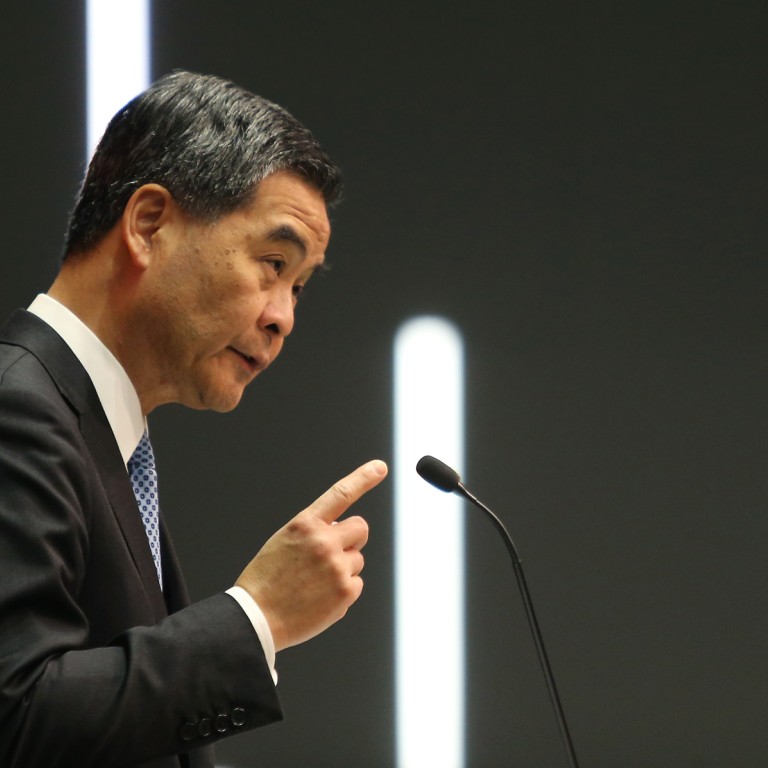
Business sector gives resounding 'no' to MPF offsetting clause
Businesses dig in heels on 'offsetting' clause in pension plan, which unionists want scrapped as per the chief executive's election promise
Despite unionists’ possible concessions on the timing of their demand to see the Mandatory Provident Fund’s “offsetting” mechanism ditched, the message from the business sector seems clear: no deal is possible.
Seething criticisms have poured in from the labour side over chief executive Leung Chun-ying’s omission of the clause – which allows employers to offset severance payouts and long-service pay with their contributions to the employees’ MPF accounts – from the policy address last month.
But the employers remained determined not to concede.
“We are worried of a slippery slope. Once we agree to some sort of changes to the offsetting mechanism, the unionists will demand more,” said Jimmy Ng Wing-ka of the Chinese Manufacturers’ Association.
The inclusion of the offsetting mechanism was a pre-condition for business leaders to agree to the establishment of the MPF in 2000.
The Federation of Trade Unions (FTU) – a Beijing-loyalist party and a supporter of Leung in the top job election – vowed to “reclaim the debt” from the chief executive, as the abolition of the mechanism was among Leung’s election promises.
We are worried of a slippery slope. Once we agree to some sort of changes to the offsetting mechanism, the unionists will demand more
FTU chairman Stanley Ng Chau-pei said there was room for negotiation about “gradually lowering” the offsetting ratio, but added that discussions with the business side and the government were urgently needed.
“We are willing to consider different approaches – let it be lowering the ratio in phases, separating the offsetting of severance and long service pay, or something else,” said Ng, who sits on the Labour Advisory Board.
“Regardless, we need to sit down and talk with the government and businesses first.”
A majority vote is needed on the board – consisting of six representatives from the employee and employer sides – to kick-start legal amendments that would abolish the offsetting mechanism in the retirement scheme.
The mechanism means that if an employee pays a total of HK$1,000 to the MPF, an amount matched by the employer during the staff's tenure, and the severance pay amounts to HK$900, then the employer can consider the amount already covered by its share of MPF contributions. If the severance pay is more than HK$1,000 in this case, however, the employer can simply make up the difference.
One of the board’s employer representatives, Stanley Lau Chin-ho, who heads the Federation of Hong Kong Industries, said any change would have far-reaching effects.
“Not now,” said Lau when asked about the unionists’ demand. “We need an overall review of the MPF, perhaps. But these offsetting abolition proposals alone cannot resolve the differences [between the business and the labour side].”
He added: “Much more in-depth study is required before making any move. This affects the interest of the whole society – not only of businesses.”


